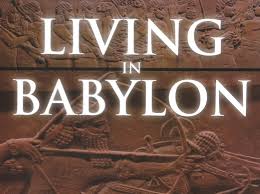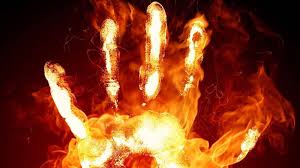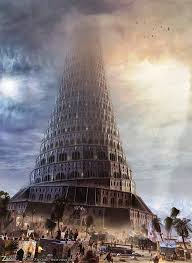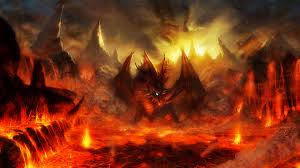Ee – No Dirty Money 23: 17-18
No Dirty Money
23: 17-18
No dirty money DIG: What nations practiced temple prostitution? What was its purpose? Why did God forbid the Israelites to practice it? What was the real effect of ritual prostitution? How was the use of money that had been acquired by sinful means hypocritical?
REFLECT: This is a world-wide problem, but how is the problem of sex-trade affecting your community? Your marriage? Your family? Your place of worship? Who do you know who practices evil, but thinks that good may come of it? How can you pray for them?
The Israelites were not to practice evil so that good may come of it.
Deuteronomy 19:1 to 26:15 (to see link click Dl – The Social and Family Mitzvot) deals with individual mitzvot, and to today’s readers they might appear irrelevant at first, but the very principles behind these commandments were the ones that have brought dignity to mankind. We need to examine these mitzvot in depth to discover the spirit in which they were given, so that we can still live in obedience to God’s Word today. For example, in Numbers 18, the Israelites were to bring their tithes to the Tabernacle because the priests and Levites had no inheritance. But today we have no Temple and no priesthood; however, we bring our tithes to our place of worship. That is the spirit of the mitzvah.

From 23:15 to 26:15, Moses deals with twenty real life situations that the nation would need to function in a godly manner, and valuable lessons for us today as well: number two.
Temple prostitution was common in the religions of the ancient Near East. Cult prostitutes, both male and female, were a feature of the religion practiced by the peoples of Canaan (see the commentary on Genesis Je – Judah Recognized His Seal and Staff and said: She is More Righteous Than I). “Worshippers” felt that they could communicate with the deity only by ritual actions that portrayed what they wanted the god to do. Since Ba’al was, like almost all ancient deities, a fertility god, the act of human intercourse demonstrated that they wanted to multiply their crop (seed). The opposition to the practice was in keeping with Deuteronomy’s rejection of all forms of Canaanite worship, and especially the association of sexuality with the deity.503 The Torah forbid prostitution in general (Leviticus 19:29), and this mitzvah prohibits it in the context of worship. Therefore, YHVH commanded that no Israelite man or woman was to become a shrine prostitute (23:17 NIV).
Furthermore, Moshe declared: You must not bring the earnings of a female prostitute (Hebrew: zovnah, meaning a harlot) or of a male prostitute (Hebrew: kelev, meaning a dog) into the house of ADONAI your God to pay any vow, because ADONAI your God detests them both (23:18 NIV). When a vow was to be paid to YHVH, it was not as though He needed the money; the payment reflected an attitude of gratitude for God’s gracious provision. Israelites were not to pay promised offerings to the Temple with money obtained from this sinful practice.504
This mitzvah implies that the money earned by temple prostitutes was supposed to be used for the maintenance of the Temple and the priests. But God was saying that earnings derived from prostitution was unacceptable: All her images will be smashed, all her prostitute’s pay burned with fire, and all her idols I will make desolate. For from the prostitute’s pay she collected them and to the prostitute’s pay they will return (Micah 1:7). Supposedly the earnings of temple prostitutes were then given back to God’s holy Temple as “temple gifts.” But since prostitution itself was illegal, the money could not be brought to the House of God. It was, in effect, “dirty money.” No wonder it was detestable to ADONAI.
Unfortunately, the history of Isra’el is full of examples of her failure to keep this mitzvah (First Kings 14:24, 15:12, 22:46; Second Kings 23:7; Hosea 4:14). The real effect of temple prostitution on the nation only served to erode the family, the morals of society in general, and eventually led to the Babylon captivity (see the commentary on Jeremiah Gu – Seventy Years of Imperial Babylonian Rule).
Dear Heavenly Father, Praise You that You are perfectly holy. Praise You that holiness to You is much more than outward appearances. The attitude of the heart is what You judge. Yeshua clearly states that adultery can be committed not only by outward physical action; but adultery is also committed by the heart. Though many people nowadays would claim to be righteous by having no involvement in the sex trade, yet Yeshua would ask them, “How is the feelings of your heart when you see a woman?” You have heard that it was said, “You shall not commit adultery.” But I tell you that everyone who looks upon a woman to lust after her has already committed adultery with her in his heart (Matthew 5:27-28).
Praise You that Your Holy Ruach lives in all believers (Romans 8:9) and He is always there to help and to guide so You win the temptation battle . No temptation has taken hold of you except what is common to mankind. But God is faithful – He will not allow you to be tempted beyond what you can handle. But with the temptation He will also provide a way of escape, so you will be able to endure it (First Corinthians 10:13). Thank You for being such a wonderful Father and for always being with Your children. For God Himself has said, “I will never leave you or forsake you,” (Hebrews 13:5c). In Yeshua’s holy name and His power of resurrection. Amen






 El evento que señalará el comienzo de la segunda mitad de la Gran Tribulación será la toma por parte del anticristo del Templo de la Tribulación, cuando se declare a sí mismo como Dios. Hará que el falso profeta establezca su imagen en el Lugar Santísimo, lo que resultará en el genocidio del pueblo judío. Debido a que esta acción causará a los judíos tanta angustia y desesperación, se llama abominación desoladora.
El evento que señalará el comienzo de la segunda mitad de la Gran Tribulación será la toma por parte del anticristo del Templo de la Tribulación, cuando se declare a sí mismo como Dios. Hará que el falso profeta establezca su imagen en el Lugar Santísimo, lo que resultará en el genocidio del pueblo judío. Debido a que esta acción causará a los judíos tanta angustia y desesperación, se llama abominación desoladora. La Segunda Venida de Jesús (Yeshua el Mesías) es fácilmente el evento más emocionante en la profecía bíblica. Todo creyente debería estar aguardando la esperanza bienaventurada y la manifestación gloriosa de nuestro gran Dios y Salvador Jesús el Mesías, quien se dio a sí mismo por nosotros para redimirnos de toda iniquidad y purificar para sí un pueblo de su propia posesión, celoso de buenas obras (Tito 2:13-14) Su Segunda Venida será en marcado contraste con Su Primera Venida, cuando Él cumplió las promesas de un Salvador. En esa ocasión, Él vino humildemente, para nacer en un pesebre. Se permitió a Sí mismo ser objeto de abuso y golpeado por los hombres, incluso hasta el punto de ser escupido y crucificado. Sin embargo, la próxima vez que nuestro Señor vuelva no vendrá en humildad, sino en gran gloria y poder. Su aspecto glorioso contrastará significativamente con Su humilde nacimiento hace unos dos mil años.
La Segunda Venida de Jesús (Yeshua el Mesías) es fácilmente el evento más emocionante en la profecía bíblica. Todo creyente debería estar aguardando la esperanza bienaventurada y la manifestación gloriosa de nuestro gran Dios y Salvador Jesús el Mesías, quien se dio a sí mismo por nosotros para redimirnos de toda iniquidad y purificar para sí un pueblo de su propia posesión, celoso de buenas obras (Tito 2:13-14) Su Segunda Venida será en marcado contraste con Su Primera Venida, cuando Él cumplió las promesas de un Salvador. En esa ocasión, Él vino humildemente, para nacer en un pesebre. Se permitió a Sí mismo ser objeto de abuso y golpeado por los hombres, incluso hasta el punto de ser escupido y crucificado. Sin embargo, la próxima vez que nuestro Señor vuelva no vendrá en humildad, sino en gran gloria y poder. Su aspecto glorioso contrastará significativamente con Su humilde nacimiento hace unos dos mil años. Otro ángel fuerte (5:2, 10:1) ahora apareció en la visión de Juan. En un acto dramático que representa la destrucción de Babilonia: Y un ángel fuerte levantó una piedra, como una gran piedra de molino, y la echó al mar, diciendo: ¡Así, con ímpetu, será arrojada Babilonia, la ciudad grande! ¡Que nunca jamás sea hallada! (18:21). El nombre Getsemaní (Mateo 26:36) significa prensa de aceite, es decir, un molino de piedra para moler aceitunas en pulpa para su aceite. Hasta hace muy poco, los árabes en las aldeas de Israel usaban esas prensas con el mismo propósito, y muchas de las piedras de molino todavía están alrededor. Son circulares con un agujero en el centro para el eje, el diámetro promedio de la piedra es de aproximadamente 1,5 metros, el espesor es de unos 30 centímetros y el peso es más de una tonelada.400
Otro ángel fuerte (5:2, 10:1) ahora apareció en la visión de Juan. En un acto dramático que representa la destrucción de Babilonia: Y un ángel fuerte levantó una piedra, como una gran piedra de molino, y la echó al mar, diciendo: ¡Así, con ímpetu, será arrojada Babilonia, la ciudad grande! ¡Que nunca jamás sea hallada! (18:21). El nombre Getsemaní (Mateo 26:36) significa prensa de aceite, es decir, un molino de piedra para moler aceitunas en pulpa para su aceite. Hasta hace muy poco, los árabes en las aldeas de Israel usaban esas prensas con el mismo propósito, y muchas de las piedras de molino todavía están alrededor. Son circulares con un agujero en el centro para el eje, el diámetro promedio de la piedra es de aproximadamente 1,5 metros, el espesor es de unos 30 centímetros y el peso es más de una tonelada.400 La segunda razón dada para el juicio de Babilonia será por: con tus hechicerías fueron engañadas todas las naciones (18:23c). La palabra hechicería proviene de la palabra griega farmakia (o farmakeía), raíz de las palabras farmacia y productos farmacéuticos. Se usa en el Nuevo Pacto para referirse a las prácticas mágicas y ocultas (
La segunda razón dada para el juicio de Babilonia será por: con tus hechicerías fueron engañadas todas las naciones (18:23c). La palabra hechicería proviene de la palabra griega farmakia (o farmakeía), raíz de las palabras farmacia y productos farmacéuticos. Se usa en el Nuevo Pacto para referirse a las prácticas mágicas y ocultas ( El ángel que comenzó a hablar en 18:4 se dirigirá a los redimidos en el cielo, diciendo: ¡Alégrate, oh cielo, sobre ella, y también vosotros santos, apóstoles y profetas, porque en ella Dios ha juzgado vuestra causa! 18:20 El tan esperado momento de vindicación y justicia por el cual los creyentes mártires de la Tribulación habían orado habrá llegado (6:9-10). Dios impondrá a Babilonia la misma sentencia que ella le impuso a ellos. Se regocijarán, no por los perdidos, sino por el triunfo de la justicia, la exaltación de Jesús, la eliminación de Sus enemigos y la aparición del reino mesiánico.399
El ángel que comenzó a hablar en 18:4 se dirigirá a los redimidos en el cielo, diciendo: ¡Alégrate, oh cielo, sobre ella, y también vosotros santos, apóstoles y profetas, porque en ella Dios ha juzgado vuestra causa! 18:20 El tan esperado momento de vindicación y justicia por el cual los creyentes mártires de la Tribulación habían orado habrá llegado (6:9-10). Dios impondrá a Babilonia la misma sentencia que ella le impuso a ellos. Se regocijarán, no por los perdidos, sino por el triunfo de la justicia, la exaltación de Jesús, la eliminación de Sus enemigos y la aparición del reino mesiánico.399
 …estando en pie de lejos, a causa del temor de su tormento, dirán: ¡Ay, ay, la gran ciudad, Babilonia, ciudad fuerte, en una hora vino tu juicio! (18:10). Mientras la observan arder, estarán aterrorizados por su tormento. Hasta ese momento, como la joya de la corona del imperio de la bestia, había sobrevivido a los juicios abrumadores de la Gran Tribulación. Ella parecía ser invencible, entonces la rápida destrucción de ella los sorprenderá y asombrará. Todos sus planes serán destruidos en una hora. Qué tonto sería pasar toda nuestra vida basada en el sistema mundial y luego ver cómo se desmorona ante nuestros ojos. Qué tonto sería que desperdiciáramos nuestras vidas viviendo por lo incorrecto.
…estando en pie de lejos, a causa del temor de su tormento, dirán: ¡Ay, ay, la gran ciudad, Babilonia, ciudad fuerte, en una hora vino tu juicio! (18:10). Mientras la observan arder, estarán aterrorizados por su tormento. Hasta ese momento, como la joya de la corona del imperio de la bestia, había sobrevivido a los juicios abrumadores de la Gran Tribulación. Ella parecía ser invencible, entonces la rápida destrucción de ella los sorprenderá y asombrará. Todos sus planes serán destruidos en una hora. Qué tonto sería pasar toda nuestra vida basada en el sistema mundial y luego ver cómo se desmorona ante nuestros ojos. Qué tonto sería que desperdiciáramos nuestras vidas viviendo por lo incorrecto. Por último, en un solo día vendrán sus plagas: muerte, duelo y hambre; y será consumida con fuego, porque poderoso es el Señor Dios que la juzgó (18:8). Nadie puede frustrar Sus planes, o detenerlo a Él de lograr que Sus propósitos se cumplan. Job dijo al SEÑOR: Reconozco que todo lo puedes, Y que ningún propósito te puede ser estorbado (Job 42:2). Todo el poder de los hombres y demonios no será suficiente para liberar a Babilonia del juicio de Dios.394 La Biblia no describe la fuente de un fuego tan devastador, pero seguramente no será un fuego ordinario. Nos recuerda el azufre ardiente que llovió del cielo en Sodoma y Gomorra durante los días de Lot. Cuando Lot miró hacia Sodoma y Gomorra, todo lo que vio fue un humo, como la humareda de un horno (
Por último, en un solo día vendrán sus plagas: muerte, duelo y hambre; y será consumida con fuego, porque poderoso es el Señor Dios que la juzgó (18:8). Nadie puede frustrar Sus planes, o detenerlo a Él de lograr que Sus propósitos se cumplan. Job dijo al SEÑOR: Reconozco que todo lo puedes, Y que ningún propósito te puede ser estorbado (Job 42:2). Todo el poder de los hombres y demonios no será suficiente para liberar a Babilonia del juicio de Dios.394 La Biblia no describe la fuente de un fuego tan devastador, pero seguramente no será un fuego ordinario. Nos recuerda el azufre ardiente que llovió del cielo en Sodoma y Gomorra durante los días de Lot. Cuando Lot miró hacia Sodoma y Gomorra, todo lo que vio fue un humo, como la humareda de un horno ( El ángel continuó proclamando: sus pecados han sido apilados hasta el cielo, y Dios se ha acordado de sus maldades (18:5). Nimrod dirigió a los primeros rebeldes de Babel en la construcción de una gran torre que llegaría a los cielos (
El ángel continuó proclamando: sus pecados han sido apilados hasta el cielo, y Dios se ha acordado de sus maldades (18:5). Nimrod dirigió a los primeros rebeldes de Babel en la construcción de una gran torre que llegaría a los cielos ( En lo que respecta al creyente, la Biblia enseña esta maravillosa verdad: Porque como la altura de los cielos sobre la tierra, Engrandeció su misericordia para los que lo temen. Como el oriente está lejos del occidente, Así hizo alejar de nosotros nuestras transgresiones (Salmo 103:11-12). La expresión como el oriente está lejos del occidente indica que es inconmensurable. Sin embargo, para aquellos que rechazan a Yeshua (Jesús), Él no se olvida y Él conoce el alcance de la maldad de Babilonia. Cuando el Señor regrese, todos los errores serán corregidos. Habrá pasado mucho tiempo entre la rebelión de Nimrod en la Torre de Babel y la rebelión de la Bestia durante la Gran Tribulación, pero ADONAI recordará sus crímenes. Será tiempo para que ella beba de la copa de la ira (18:5b).389 A pesar de que Él es paciente, el castigo final de Babilonia es ineludible.
En lo que respecta al creyente, la Biblia enseña esta maravillosa verdad: Porque como la altura de los cielos sobre la tierra, Engrandeció su misericordia para los que lo temen. Como el oriente está lejos del occidente, Así hizo alejar de nosotros nuestras transgresiones (Salmo 103:11-12). La expresión como el oriente está lejos del occidente indica que es inconmensurable. Sin embargo, para aquellos que rechazan a Yeshua (Jesús), Él no se olvida y Él conoce el alcance de la maldad de Babilonia. Cuando el Señor regrese, todos los errores serán corregidos. Habrá pasado mucho tiempo entre la rebelión de Nimrod en la Torre de Babel y la rebelión de la Bestia durante la Gran Tribulación, pero ADONAI recordará sus crímenes. Será tiempo para que ella beba de la copa de la ira (18:5b).389 A pesar de que Él es paciente, el castigo final de Babilonia es ineludible. यूहन्ना का प्रस्तावना एक रूबिक क्यूब के विपरीत नहीं है, जो 1970 के दशक के उत्पीड़न पहेली-खिलौना है। दूसरों के साथ तार्कि क समस्या ओं के कारण आप प्रस्तावना के एक वाक्यको नहीं बदल सकते जोसफ स्मिथ (उदाहरण के लिए, मॉ र्मनवाद के संस्थापक, यूहन्ना ने अपने “प्रेरित संस्करण” के ग्रंथोंमें इस विचार को समर्थ नदेनेके लिए यूहन्ना का प्रस्ताव बदल दिया है कि मसीह परमेश्वर नहीं है, लेकिन किसी भी चीज़ से पहले ईश्वर द्वारा बनाया गया एक महान व्यक्ति थाl हालांकि, वहतीसरे पद्यकी व्याख्या में विफल रहे: “सब कुछ उसी के द्वारा उत्पन्न हुआ, और जो कुछ उत्पन्न हुआ है उसमें से कोई भो वस्तु उसके बिना उत्पन्न नहीं हुई” (यूहन्ना 1:3)l
यूहन्ना का प्रस्तावना एक रूबिक क्यूब के विपरीत नहीं है, जो 1970 के दशक के उत्पीड़न पहेली-खिलौना है। दूसरों के साथ तार्कि क समस्या ओं के कारण आप प्रस्तावना के एक वाक्यको नहीं बदल सकते जोसफ स्मिथ (उदाहरण के लिए, मॉ र्मनवाद के संस्थापक, यूहन्ना ने अपने “प्रेरित संस्करण” के ग्रंथोंमें इस विचार को समर्थ नदेनेके लिए यूहन्ना का प्रस्ताव बदल दिया है कि मसीह परमेश्वर नहीं है, लेकिन किसी भी चीज़ से पहले ईश्वर द्वारा बनाया गया एक महान व्यक्ति थाl हालांकि, वहतीसरे पद्यकी व्याख्या में विफल रहे: “सब कुछ उसी के द्वारा उत्पन्न हुआ, और जो कुछ उत्पन्न हुआ है उसमें से कोई भो वस्तु उसके बिना उत्पन्न नहीं हुई” (यूहन्ना 1:3)l Pero esto no durará. En realidad, en el momento en que Satanás sea expulsado del cielo, sabrá que su tiempo es corto (12:12). Antes de que el anticristo tenga tiempo de romper todas sus promesas de campaña, su imperio comienza a desmoronarse. Anteriormente en 14:8 fuimos advertidos de la inevitable caída de Babilonia: ¡Cayó, cayó Babilonia, la grande, la que ha hecho beber a todas las naciones del vino ponzoñoso de su fornicación! Estas naciones son las naciones gentiles. Como una ciudad costera indefensa en el camino de un tsunami gigante, es solo cuestión de tiempo antes de que se reduzca a nada. Apocalipsis 18 comienza con el mismo pronunciamiento, pero agrega algunos detalles más.
Pero esto no durará. En realidad, en el momento en que Satanás sea expulsado del cielo, sabrá que su tiempo es corto (12:12). Antes de que el anticristo tenga tiempo de romper todas sus promesas de campaña, su imperio comienza a desmoronarse. Anteriormente en 14:8 fuimos advertidos de la inevitable caída de Babilonia: ¡Cayó, cayó Babilonia, la grande, la que ha hecho beber a todas las naciones del vino ponzoñoso de su fornicación! Estas naciones son las naciones gentiles. Como una ciudad costera indefensa en el camino de un tsunami gigante, es solo cuestión de tiempo antes de que se reduzca a nada. Apocalipsis 18 comienza con el mismo pronunciamiento, pero agrega algunos detalles más. El juicio contra Babilonia (14:8) es contra su orgullo, crueldad, avaricia (Primera Timoteo 6 9-10) y materialismo. Es un juicio justo (15:3, 16:5 y 7, 18:10 y 20, 19:2), alabado por el pueblo de Dios, pero llorado por los mundanos y los malvados que comparten sus valores. El capítulo 18 es muy sombrío y, en realidad, es un canto fúnebre para la humanidad.
El juicio contra Babilonia (14:8) es contra su orgullo, crueldad, avaricia (Primera Timoteo 6 9-10) y materialismo. Es un juicio justo (15:3, 16:5 y 7, 18:10 y 20, 19:2), alabado por el pueblo de Dios, pero llorado por los mundanos y los malvados que comparten sus valores. El capítulo 18 es muy sombrío y, en realidad, es un canto fúnebre para la humanidad. …y la dejarán desolada y desnuda, y devorarán sus carnes, y a ella la quemarán con fuego (17:16b). Obviamente no habrá más espacio para la ramera y su única religión mundial. La bestia no puede ser dios y al mismo tiempo estar sujeto a quienes siguen a la ramera. ¡Alguien tiene que irse! El anticristo y sus aliados destruirán el sistema religioso de la Misteriosa Babilonia y cualquier persona que se oponga a su política y economía. Aparentemente no habrá duelo relacionado con la destrucción de la ramera. Ellos le confiscarán su ropa, oro y piedras preciosas; van a perseguir y matar a sus pobres personas engañadas. El hecho de que la bestia se volverá contra la ramera la llevará a la ruina y la dejará desnuda; y devorarán sus carnes, y a ella la quemarán con fuego, es indicativo de la intensidad y totalidad de su destrucción. Nada quedará de ella.382
…y la dejarán desolada y desnuda, y devorarán sus carnes, y a ella la quemarán con fuego (17:16b). Obviamente no habrá más espacio para la ramera y su única religión mundial. La bestia no puede ser dios y al mismo tiempo estar sujeto a quienes siguen a la ramera. ¡Alguien tiene que irse! El anticristo y sus aliados destruirán el sistema religioso de la Misteriosa Babilonia y cualquier persona que se oponga a su política y economía. Aparentemente no habrá duelo relacionado con la destrucción de la ramera. Ellos le confiscarán su ropa, oro y piedras preciosas; van a perseguir y matar a sus pobres personas engañadas. El hecho de que la bestia se volverá contra la ramera la llevará a la ruina y la dejará desnuda; y devorarán sus carnes, y a ella la quemarán con fuego, es indicativo de la intensidad y totalidad de su destrucción. Nada quedará de ella.382 La Biblia se refiere a Yeshua el Mesías como el Rey eterno. Esta sección habla de los últimos tiempos cuando los reyes terrenales lucharán para establecer su propia autoridad durante la Gran Tribulación. No sabemos quienes son ellos, pero sí sabemos a Quien no pueden superar: Ellos pelearán contra el Cordero, y el Cordero los vencerá, porque Él es Señor de señores y Rey de reyes; y los que están con Él son llamados, y elegidos, y fieles (17:14). El Señor Jesucristo es Adonai Ha’Adomim, REY de reyes y SEÑOR de señores, y Él reinará por los siglos de los siglos. Nuestro Dios es SEÑOR de señores; No hay otro maestro. Su gracia continúa para siempre. Él ha venido y Él vendrá de nuevo.
La Biblia se refiere a Yeshua el Mesías como el Rey eterno. Esta sección habla de los últimos tiempos cuando los reyes terrenales lucharán para establecer su propia autoridad durante la Gran Tribulación. No sabemos quienes son ellos, pero sí sabemos a Quien no pueden superar: Ellos pelearán contra el Cordero, y el Cordero los vencerá, porque Él es Señor de señores y Rey de reyes; y los que están con Él son llamados, y elegidos, y fieles (17:14). El Señor Jesucristo es Adonai Ha’Adomim, REY de reyes y SEÑOR de señores, y Él reinará por los siglos de los siglos. Nuestro Dios es SEÑOR de señores; No hay otro maestro. Su gracia continúa para siempre. Él ha venido y Él vendrá de nuevo. En el libro de Apocalipsis, el nombre de la bestia puede referirse al sistema de un gobierno mundial, a la persona del anticristo, o incluso al falso profeta. Primero, es una referencia al Cuarto Reino Gentil (
En el libro de Apocalipsis, el nombre de la bestia puede referirse al sistema de un gobierno mundial, a la persona del anticristo, o incluso al falso profeta. Primero, es una referencia al Cuarto Reino Gentil (